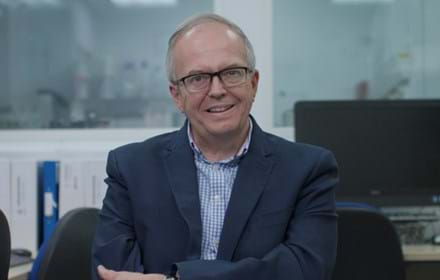
Workplace screening reveals hidden threat of type 2 diabetes
Hundreds of people in Hampshire likely remain undiagnosed with type 2 diabetes could face serious future health risks.
A workplace screening exercise by Hampshire based Diabetes Research & Wellness Foundation (DRWF) has demonstrated that many people are unaware that they are at risk of developing type 2 diabetes and the associated health risks,
The charity ran the event at Langstone Technology Park on Thursday, 13th June during National Diabetes Week and tested dozens of volunteers from the 59 organisations based there. It was part of the established on-site health and safety forum wellness programme.
DRWF is working in partnership with BHR Pharmaceuticals Limited - who provided the BHR A1CNOW+ HbA1c Blood Testing System and the staff to administer the test.
It is a portable system which allows healthcare professionals to provide individuals with an indicator of average blood glucose control for the past two to three months. It measures the amount of blood glucose in millimoles per mole (mmol/mol).
The ranges used were:
-
Normal – 42mmol/mol or lower
-
Indicator of pre-diabetes – 43-47mmol/mol
-
Indicator of diabetes – 48mmol/mol
Out of 87 people tested, five recorded readings in the 43-47 range.
DRWF and BHR provided support for these people and a letter to take to their GP for more tests.

Staff from DRWF and BHR testing volunteers at Langstone Technology Park
The BHR A1CNOW+ HbA1c Blood Testing System gives an indicator of average blood glucose control for the past two to three months
An estimated 12,906 people aged over 16 have been diagnosed with type 2 diabetes in Portsmouth, according to figures from Public Health England.
The Office for National Statistics estimates that 7 people out of every 100 in the area have the condition, but are undiagnosed.
Sarah Tutton, DRWF Chief Executive, said: “We were very pleased to offer a workplace screening event today with BHR. It allows people to have a quick and fairly painless test, which can flag any issues with their long-term blood glucose readings.
“We know early type 2 diabetes intervention can make a huge difference to their future health. We have robust protocols in place to manage people’s reactions to the test and to provide ongoing diabetes help and support through our NHS Information Standard accredited information, website and events programme.”
Complications resulting from type 2 diabetes cost the NHS more than £1.5 million an hour, around 10% of the NHS budget for England and Wales.
In total, an estimated £14 billion pounds is spent each year on treating diabetes and its complications, with the cost of treating complications representing the much higher cost.
Chris Hill, of Fasset Langstone property and facilities management company, said:
“The health and safety forum meet every six months and we were delighted to support this activity with DRWF. We know a fit and healthy workforce makes for a happier and more productive company and we are keen to support all our tenants which range from call centres, laboratories, recruiters, charities and software designers to improve their well-being.”
Support DRWF by making a donation here
Find out more about DRWF-funded research here
Find out more about DRWF fundraising here
For latest update follow DRWF on Facebook, Instagram and Twitter
To receive the charity’s latest bulletins as they become available, please sign up here
Read DRWF diabetes information leaflets here
Join the Diabetes Wellness Network here
I would like to make a regular donation of
I would like to make a single donation of
There are lots of ways to raise money to support
people living with all forms of diabetes.
Bake, Swim, Cycle, Fly ... Do It For DRWF!
Fundraise with us
Recent News


